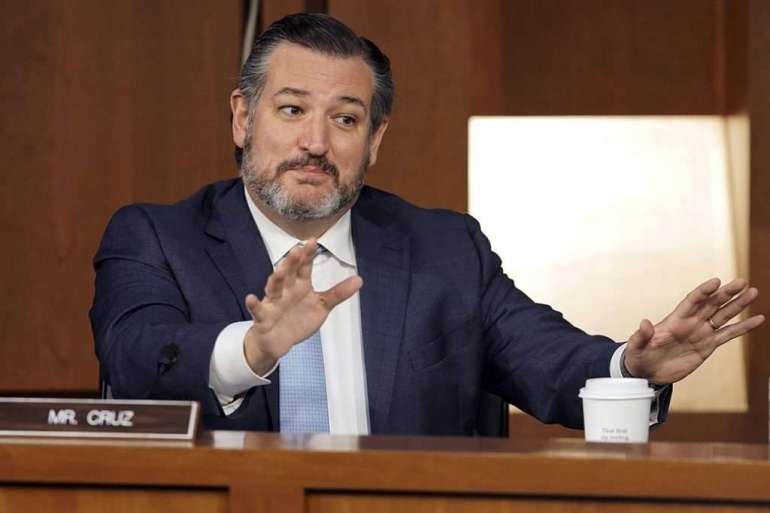At least 12 GOP senators to challenge Biden’s win

The 11 senators’ efforts are separate from Sen. Josh Hawley (R-Mo.), who was the first senator to announce he would join with House Republicans to object to the certification of the election results. Hawley responded to the new objectors on Saturday, saying he hopes “many more will listen to their constituents and act.”
The building support for efforts to vote against Biden’s win in Congress has created a major rift in the GOP. Sen. Pat Toomey (R-Pa.) was among the Republicans who punched back Saturday at the movement within his party, which in part centers around attacks on how the election was conducted in his own state. Toomey said the effort by Hawley and Cruz “directly undermines” the ability of people to elect their own leaders.
Late Saturday night, Hawley responded to what he called “shameless personal attacks” and said the debate over the election should occur on the Senate floor not in conference calls or press releases.
“We should avoid putting words into each other’s mouths and making unfounded claims about the intentions of our fellow senators. I never claim to speak for another senator, but I do speak for my constituents when they raise legitimate concerns about issues as important as the fairness of our elections,” Hawley said in a Saturday evening message sent to the Senate GOP conference.
The effort to vote against Biden’s electoral win is opposed by Senate Majority Leader Mitch McConnell (R-Ky.), though the GOP leadership is not whipping against the effort to prevent the certification of Biden as president. In the House, as many as 140 Republicans have indicated they may vote against certifying Biden’s Electoral College win.
Biden’s win will be certified by majorities in the Democratic House and Republican Senate, however, as enough GOP senators have already said they will oppose efforts to object to the election results. The question, though, is how many might eventually sign on: Many Republican senators have not indicated yet how they will vote.
In a statement released Saturday, Sen. Lisa Murkowski (R-Alaska) said she would “vote to affirm the 2020 presidential election.” Sen. Mitt Romney (R-Utah) called the move “an egregious ploy” that “dangerously threatens our Democratic Republic.”
And Toomey, who is retiring, said that “allegations of fraud by a losing campaign cannot justify overturning an election.” He said Trump’s loss in his state stemmed from Trump’s narrower margins in rural Pennsylvania and Trump’s decline in suburban support.
Hawley, in his response to Toomey, said the state’s mail ballots had not been litigated sufficiently. The two have also been at odds over $2,000 stimulus checks, which Hawley supports and Toomey opposes.
“No one has mounted a substantive defense of the state law under which the November election was conducted. And contrary to Senator Toomey’s claims, no court has ruled on the merits of this question. These are very serious irregularities, on a very large scale, in a presidential election,” Hawley said in the message to the 52-member conference.
In a statement on Saturday afternoon, the 11 current and incoming GOP senators led by Cruz said they intended to reject the electors from states where they claimed “unprecedented allegations of voter fraud, violations and lax enforcement of election law” arose until a 10-day audit of the election results in each state has been completed.
“Voter fraud has posed a persistent challenge in our elections, although its breadth and scope are disputed,” the group said. “By any measure, the allegations of fraud and irregularities in the 2020 election exceed any in our lifetimes.”
The group of Republicans insisted their effort wasn’t an attempt to thwart Biden or overturn the election, but rather aimed to protect “election integrity.” Likewise, Hawley said he was not trying to overturn the election.
The new faction of GOP lawmakers includes Sens. Marsha Blackburn (Tenn.), Mike Braun (Ind.), Cruz (Texas), Steve Daines (Mont.), Ron Johnson (Wis.), John Kennedy (La.) and James Lankford (Okla.), as well as Sen.-elects Bill Hagerty (Tenn.), Cynthia Lummis (Wyo.), Roger Marshall (Kan.) and Tommy Tuberville (Ala.).
Lankford, Johnson and Kennedy are all up for reelection in 2022, and the vote will effectively become a wedge issue within the Republican Party. Republicans who vote against Trump and allow the certification of Biden’s election could find themselves with primary challenges. Trump has already endorsed a primary challenge to Senate Majority Whip John Thune (R-S.D.).
Trump signaled his approval of the senators’ move in a series of tweets later Saturday. And Marc Short, Vice President Mike Pence’s chief of staff, said Vice President Mike Pence “welcomes the efforts of members of the House and Senate to use the authority they have under the law to raise objections and bring forward evidence.”
But many Republicans say the effort to challenge the election results doesn’t make a ton of sense.
“There’s good constitutional and other legal grounds to say: You had your day in court, 60 different lawsuits in state courts, you had a chance to appeal those to the Supreme Court, and as I read the law once a state certifies its electoral vote its conclusive,” said Sen. John Cornyn (R-Texas) in an interview on Friday.
But the 11 GOP senators said the courts should have examined the issue more closely: “Ideally, the courts would have heard evidence and resolved these claims of serious election fraud. Twice, the Supreme Court had the opportunity to do so; twice, the Court declined.”
Gabby Orr and Evan Semones contributed to this report.